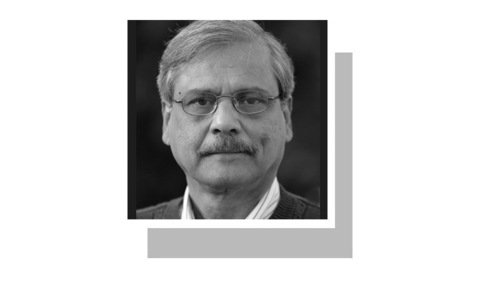
KORNITSA: Ibrahim Byalk has had a bullet stuck in his arm for nearly four decades. It adds to the painful memories of communist repression in this quiet village in southern Bulgaria.
''It hurts sometimes when I move my arm, but it is nothing compared to the pain left in my mind,'' said Byalk, looking over the square where he was shot on March 28, 1973.
That day, police and army units stormed the village and opened fire on hundreds at people gathered in the square to protest the communist regime's campaign to force Bulgaria's Muslims to adopt non-Islamic names and break up their communities.
Villagers in traditional colourful dress gathered here last week to raise their hands in prayer in memory of the victims.
The brutal crackdown left five men dead and more than 100 wounded. More than 70 families, including Byalk's, were forced to leave their homes and settle in remote villages.
''All we wanted was to keep our names and our faith,'' said the 64-year-old Byalk.The events in Kornitsa were long one of communist-ruled Bulgaria's many dark secrets.
It was only after the regime fell in 1989, and the rights of Bulgaria's Muslims were restored, that the truth surfaced.
Like many other Muslims, Byalk won't reveal the new name he was forced to adopt _ he says he has ''forgotten.'' Most often the new names would take the first two initials of the old Muslim one.
The forced renaming of Muslims began in 1973 in Kornitsa with its 1,800 ethnic Bulgarian Pomak Muslims and spread across the nation. Ethnic Turks, who form the other large group of Bulgarian Muslims, were equally harshly targeted in the assimilation campaign.
The communists tried to snuff out Muslim identity in other ways. Education in Turkish was first limited, then suppressed. Talking Turkish in public, wearing the veil and circumcising boys were forbidden.
The repression culminated in 1985 when 310,000 ethnic Turks were forced to change their names. Protests grew and in August 1989—as communism was crumbling across eastern Europe—Bulgaria forced 360,000 ethnic Turks to cross into Turkey.
Three months later the regime collapsed.
More than 22 years after the end of communism, Bulgarian authorities finally officially denounced the repression of Muslims, who form 10 per cent of Bulgaria's population of 7.4 million. In January, Parliament adopted a declaration condemning the violent assimilation of its Muslim population.
It described the expulsion of people from villages and from the country as ''a form of ethnic cleansing performed by the totalitarian regime.''
''I still cannot understand why they did this to us _ to deprive us from our basic right to choose a name, a religion,'' asked 74-year-old Bayram Geta.
Geta, a leader of the Kornitsa protest, spent 8 1/2 years in prison for ''activities against the Socialist state.'' Nine other Kornitsa protesters were also jailed. Geta's wife and four children were forced to leave their home and to settle in a remote village near the Danube.
Geta laid flowers at the modest monument for the five killed villagers _ with their Muslim names engraved in the gray stone.
''They even deleted the Muslim names of our ancestors from their graves in an attempt to deprive us from our past,'' he said with tears in his eyes.
Asked whether he had ever thought about revenge, Byalk said: ''Why, we all suffered under the regime. One can forgive, but never forget.''
''And as for those responsible _ God will take care,'' he added.













































Dear visitor, the comments section is undergoing an overhaul and will return soon.